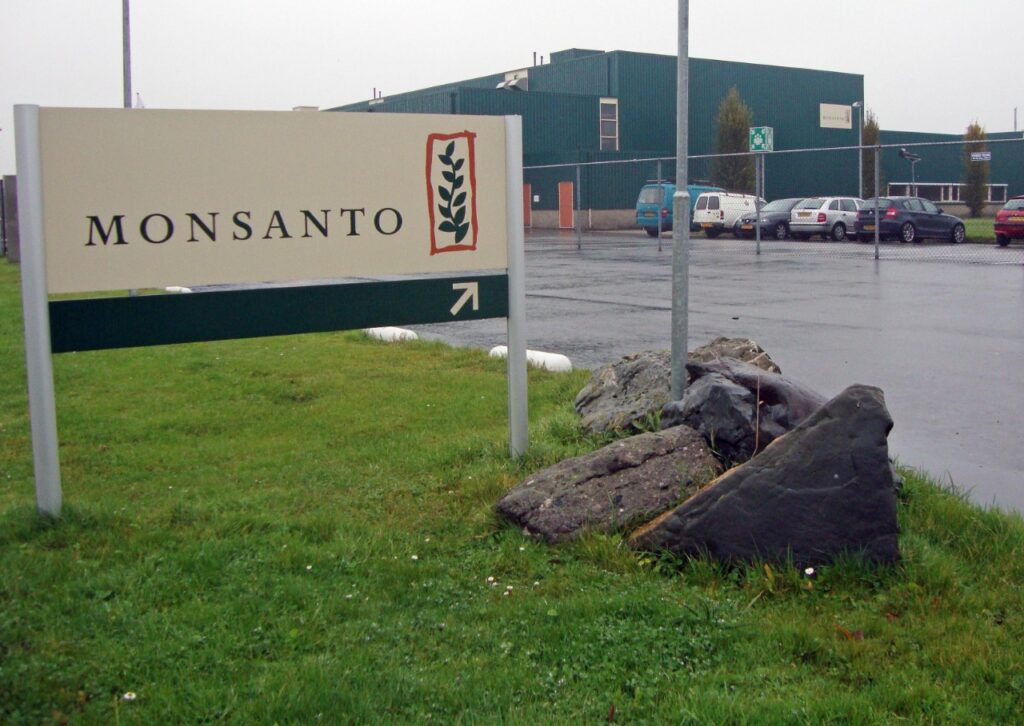
The City of Redwood City joins a lawsuit against Monsanto Company involving 8 other San Mateo County cities and towns over the massive costs they incur to remove polychlorinated biphenyls (PCBs) contamination from their jurisdictions and the San Francisco Bay.
The county is joined in the lawsuit against Monsanto by the cities and towns of Atherton, East Palo Alto, Foster City, Menlo Park, Portola Valley, San Carlos, San Mateo, Woodside and Redwood City.
All of the plaintiffs are opting out of a proposed nationwide class action settlement because it would have provided each with only a small fraction of what they need to spend to comply with regulations and prevent further spread of PCBs throughout the Bay Area, leaving taxpayers out in the cold.
According to information from San Mateo County, PCBs are poisoning fish and wildlife, disrupting business and recreation, as well as threatening the health of residents throughout the area.
The lawsuit against Monsanto, which was filed at the San Mateo County Superior Courtalleges that Monsanto has known about the threats to public health and the environment caused by PCBs for more than 50 years, and deliberately misled the public, regulators and even its own customers about those threats so that it could continue to make massive profits from PCB sales.
"The evidence is clear that Monsanto knew, and hid the truth for decades, about the dangers of PCBs, said San Mateo County District Attorney John Nibbelin. "There is no reason in the world why our taxpayers should have to pay the hundreds of millions of dollars we must spend to prevent further PCB contamination. That's Monsanto's responsibility, and that's why we're taking them to court."
In the lawsuit against Monsanto, the county and cities are represented by their own staff attorneys, with support from outside counsel Sher Edling LLP of San Francisco.
Monsanto produced nearly 99 percent of all PCBs used in the United States beginning in the 1930s and continuing until the Toxic Substances Control Act of 1976 banned their manufacture.
According to Monsanto's own internal documents, company officials knew and were warned about the dangers to human health and the environment of PCBs.
In the 1950s, the U.S. Navy refused to buy one of Monsanto's PCB products, Pydraul 150, for use in its submarines because Navy tests showed that it killed 100 percent of rabbits exposed to its vapors.
However, Monsanto withheld this information from the public and its customers.
PCBs are known or suspected to cause a wide range of cancers, including non-Hodgkin's lymphoma, breast cancer, liver cancer, gallbladder cancer, gastrointestinal cancers, pancreatic cancer and skin cancer.
They are also implicated in numerous non-cancer health problems, including cardiovascular, endocrine, gastrointestinal, hepatic - liver, immune, neonatal, neurological, ocular and reproductive damage.
PCB contamination is already widespread in the Bay Area. The San Francisco Bay Regional Water Quality Control Board has identified certain parts of the Bay, including Redwood City Harbor, as "hot spots" where PCB concentrations in sediments are several orders of magnitude higher than in other parts of the Bay.
PCB contamination in the Bay has been so severe that the California Office of Environmental Health Hazard Assessment has advised some people not to eat certain types of fish caught in the Bay. For example, children and women ages 18 to 49 are advised not to eat striped bass, sharks and white sturgeon caught in the bay.
Everyone is also advised not to eat the skin and fatty tissue of any fish caught in the bay.
Water and sediment containing PCBs end up in county and municipal wastewater and stormwater systems, which ultimately reach the San Francisco Bay.
In order to meet stringent standards to prevent further contamination, plaintiffs must implement a wide range of actions, including some or all of the following:
Testing and monitoring; The installation of "green infrastructure" to capture PCBs in runoff; Measures to control PCB discharges when demolishing PCB-containing structures; Identification of PCB-contaminated sites and abatement of contamination at those sites; More frequent street sweeping; Trash capture devices that capture particles carried in runoff; and Ongoing operation and maintenance of green infrastructure, capture devices and other abatement devices.
The complaint includes claims of disorderly conduct, public nuisance and trespassing.
You may be interested in: Call to prepare for "devastating" effects of Climate Change in California

